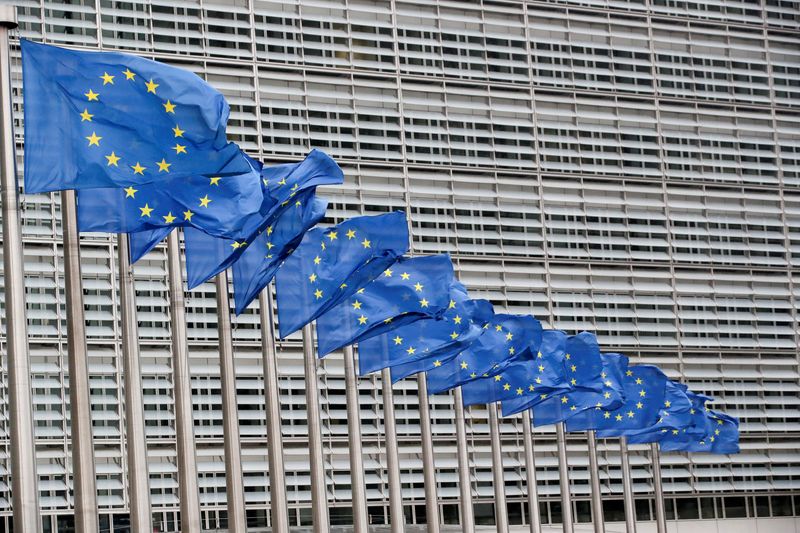Gold prices set for weekly gains on dovish Fed outlook; silver near record high
By Jan Strupczewski
BRUSSELS (Reuters) -The European Commission called on the European Investment Bank on Tuesday to change its policy this year to enable it to fund defence projects, as Europe ramps up defence production following Russia's war in Ukraine.
The EIB is owned by EU governments and some of them are reluctant to heed that call, concerned that financing defence could hurt the EIB's top credit rating and not address the problem, which they say is not a lack of funding, but of long-term contracts.
Defence and military projects are explicitly excluded from the list of activities that can be financed by the EIB and the bloc's 27 governments would have to agree to change that.
The Commission said it had invited the EIB Group's governing bodies "to adapt defence-related exclusions from the EIB Group’s Lending Policies" thereby allowing it "to support production of military equipment and more generally the European defence industry."
The call is part of a broader Commission proposal to boost defence production in the EU after Russia's invasion of Ukraine in 2022 highlighted Europe's lack of preparation for a potential military conflict with Moscow.
"The Russian war of aggression has brought a great sense of urgency to step up our defence industrial capacity," the EU's Foreign Policy chief Josep Borrell told a news conference.
With a balance sheet total of 544.6 billion euros ($590.78 billion), the EIB is the world's biggest multilateral financial institution by assets and the biggest multilateral lender, with disbursed and promised loans of 562 billion euros in 2022 compared to the World Bank's $171 billion.
FUNDING MODEL
The EIB is a key player in funding Europe's ambitious transition towards a net-zero-carbon and more digitised economy, and some countries are concerned that adding ammunition and weapons to its investment list could scare off investors.
"If the EIB touches defence, they will be off-limits to a lot of investors," one senior euro zone official close to the talks said. "We are concerned about the potential effects on the EIB’s funding of such a strategy change," the official added.
But Guntram Wolff, a senior fellow at Bruegel think tank that often prepares research for EU ministerial decisions, said the EIB rating was unlikely to be hurt by funding defence.
Wolff said the EIB's gearing ratio, which compares equity and debt issued to raise money for loans, was very conservative at 2.5 times and could be easily raised to 4 or 5 times without any impact on the credit rating.
"Also, it is a bank owned by EU governments so it has implicit government guarantees behind it anyway," Wolff said.
The bank can already lend for projects that are of dual civilian-military use, like transport infrastructure or drones. The definition of what can be dubbed dual-use should be further adjusted, the Commission said.
Poland or the Baltic countries would welcome EIB financing of defence projects, because the bank has a triple-A rating and can raise funds more cheaply than less highly rated governments.
"I think there is enough political will around the table to enable EIB to do more," a second senior euro zone official close to the talks said.
"How much more - remains an open question. In some cases, if players like EIB become more active in funding ammunition and similar facilities, it would be beneficial for a large number of EU countries," the official said.
($1 = 0.9218 euros)
